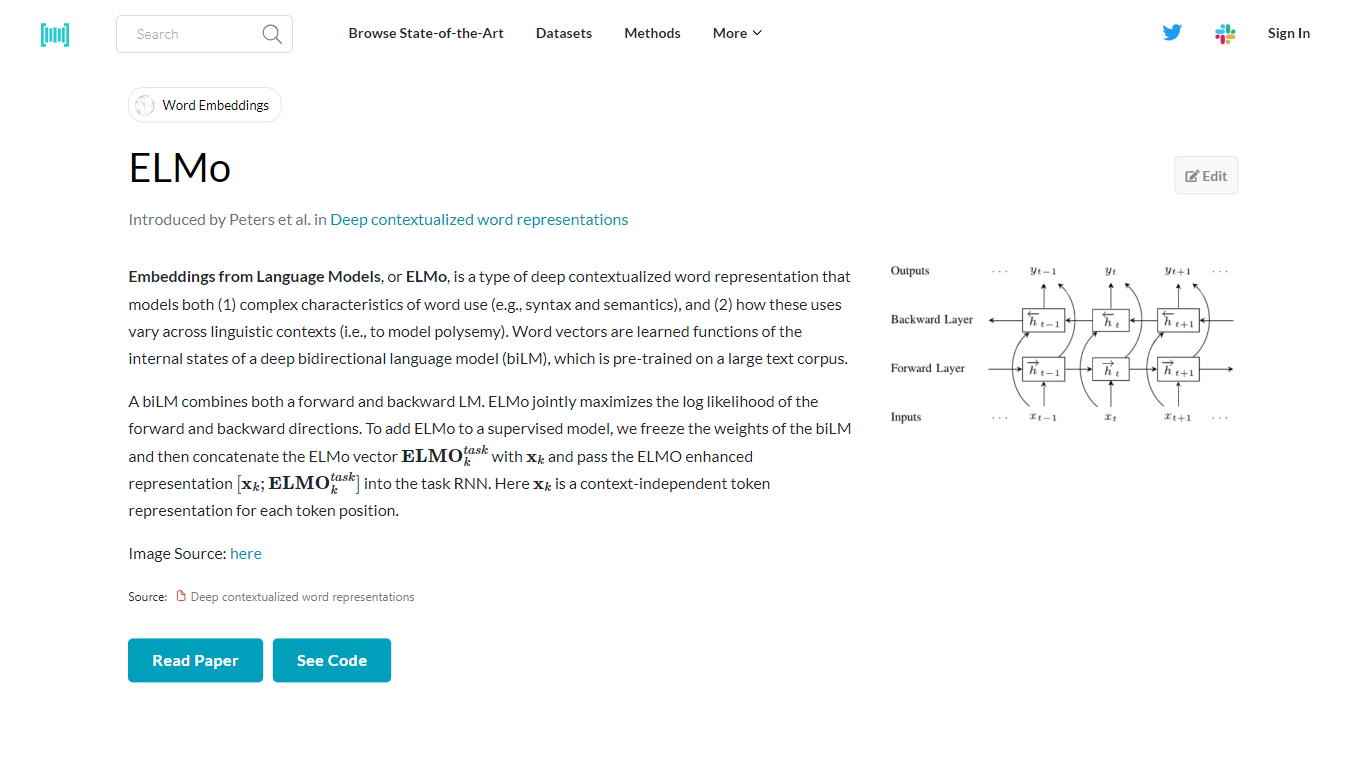ELMo vs ggml.ai
Dive into the comparison of ELMo vs ggml.ai and discover which AI Large Language Model (LLM) tool stands out. We examine alternatives, upvotes, features, reviews, pricing, and beyond.
In a comparison between ELMo and ggml.ai, which one comes out on top?
When we compare ELMo and ggml.ai, two exceptional large language model (llm) tools powered by artificial intelligence, and place them side by side, several key similarities and differences come to light. Both tools have received the same number of upvotes from aitools.fyi users. Your vote matters! Help us decide the winner among aitools.fyi users by casting your vote.
Does the result make you go "hmm"? Cast your vote and turn that frown upside down!
ELMo

What is ELMo?
Embeddings from Language Models (ELMo) is a groundbreaking language representation model that helps machines understand complex characteristics of word usage, including both syntax and semantics, and recognizes the variations of word use across different linguistic contexts. ELMo achieves this by utilizing word vectors that are learned as functions of the internal states of a pre-trained deep bidirectional language model (biLM). BiLM uniquely models both forward and backward language model likelihoods, and when adding ELMo to a task-specific model, the weights of the biLM are frozen. The ELMo vector is then concatenated with a baseline representation of tokens and fed into a task RNN, enhancing the model's performance by providing rich, context-aware word embeddings.
ggml.ai

What is ggml.ai?
ggml.ai is at the forefront of AI technology, bringing powerful machine learning capabilities directly to the edge with its innovative tensor library. Built for large model support and high performance on common hardware platforms, ggml.ai enables developers to implement advanced AI algorithms without the need for specialized equipment. The platform, written in the efficient C programming language, offers 16-bit float and integer quantization support, along with automatic differentiation and various built-in optimization algorithms like ADAM and L-BFGS. It boasts optimized performance for Apple Silicon and leverages AVX/AVX2 intrinsics on x86 architectures. Web-based applications can also exploit its capabilities via WebAssembly and WASM SIMD support. With its zero runtime memory allocations and absence of third-party dependencies, ggml.ai presents a minimal and efficient solution for on-device inference.
Projects like whisper.cpp and llama.cpp demonstrate the high-performance inference capabilities of ggml.ai, with whisper.cpp providing speech-to-text solutions and llama.cpp focusing on efficient inference of Meta's LLaMA large language model. Moreover, the company welcomes contributions to its codebase and supports an open-core development model through the MIT license. As ggml.ai continues to expand, it seeks talented full-time developers with a shared vision for on-device inference to join their team.
Designed to push the envelope of AI at the edge, ggml.ai is a testament to the spirit of play and innovation in the AI community.
ELMo Upvotes
ggml.ai Upvotes
ELMo Top Features
Deep Contextualized Word Representations: ELMo provides word vectors that deeply understand the context and nuances of word usage.
Pre-trained Bidirectional Language Model: Utilizes internal states from a biLM pre-trained on extensive text corpuses for more accurate embeddings.
Enhancement of Task-specific Models: ELMo vectors can be added to existing models to improve their performance by providing contextual information.
Modeling of Polysemy: Recognizes and represents the multiple meanings of a word depending on its linguistic context.
Syntax and Semantics Modeling: Captures complex characteristics of language use, such as sentence structure and meaning.
ggml.ai Top Features
Written in C: Ensures high performance and compatibility across a range of platforms.
Optimization for Apple Silicon: Delivers efficient processing and lower latency on Apple devices.
Support for WebAssembly and WASM SIMD: Facilitates web applications to utilize machine learning capabilities.
No Third-Party Dependencies: Makes for an uncluttered codebase and convenient deployment.
Guided Language Output Support: Enhances human-computer interaction with more intuitive AI-generated responses.
ELMo Category
- Large Language Model (LLM)
ggml.ai Category
- Large Language Model (LLM)
ELMo Pricing Type
- Freemium
ggml.ai Pricing Type
- Freemium
